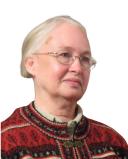Resilience
Women’s History Month: The True Heroes of Jim Crow
Resilient and strong, these are the unsung heroes from The Maid Narratives.
Posted March 21, 2020
When we think of leaders in the civil rights movement, we think of people like Martin Luther King, Jr. and Rosa Parks, who raised the consciousness of a nation and helped liberate the South from its oppressive self. But we also need to look behind the people at the forefront of the movement, to the ordinary men and women who toiled in cotton fields owned by whites and as servants in the homes of white people. We need to hear their stories. how they struggled so that their children might thrive and so that the world would be a better place. Without these men and women, the successes of the Civil Rights Movement would not have possible.
Most famously is the organized action that took place in 1955 in Montgomery, Alabama. At great personal sacrifice, the African American women who worked as maids were responsible for the first great achievement of the civil rights movement. A boycott of the segregated buses, in which black riders had to pay the driver and then depart the bus and re-enter through the back door, got underway when Rosa Parks heroically volunteered to defy the law and take a seat right in the front of the bus. The whole city of maids and other black workers rallied in support; they refused to board the bus until segregated seating came to an end. Domestic servants walked miles and miles to work. Their protest was galvanized by a young minister new to town named Martin Luther King and the support of the black churches. The PBS film, Eyes on the Prize, shows actual newsreels of domestic servants walking back and forth to work in unity against the segregated buses. Some had to walk for miles. The Hollywood movie, The Long Walk Home, realistically captures this historic event and the ultimate victory that was won.
In the 1950s and earlier, there were quieter and less dramatic overtures by domestic servants in Mississippi and neighboring states that were just as significant, though often overlooked. And for Women’s History Month, it is these women I wish to honor. I wasn’t thinking of civil rights history when I learned that many of the residents of Waterloo, Iowa had come from Mississippi as a part of The Great Migration from the 1920s following. I just wanted to hear their stories and learn, from their points of view, about their relationships with white southerners. I wanted to learn about things I had never dared ask black servants whom I knew growing up in 1950s New Orleans.
It took years for me to find willing partners from the African American community to share in the project of recording these stories. In the end, three of us—one, the descendant of slave owners in Louisiana, the others the descendants of slaves—joined together to interview women who had grown up under the laws of segregation, both blacks and whites, and to share our collection of stories from what was once known as “Jim Crow” or the “southern way of life." What we found was a complicated history full of paradoxes—the infantilization of servants on whom white women often depended for emotional support; humiliating rituals sometimes honored in their breach; humor at the absurdity of the racial etiquette; secret acts of defiance by the teenage maids; and intimacy that belied the myths of segregation as separation. The stories are now preserved in our book, The Maid Narratives. Twenty of their voice recordings are now housed for public listening and study at the University of Iowa Women’s Archives.

Much can be learned from the stories concerning the daily humiliations that servants were forced to endure under the laws and social customs under Jim Crow. As we hear from Ruthie O’Neal, for example: “She’s 12 years old,” the lady of the house told her, “call her Miss Nancy.” On another occasion, she was shocked to overhear herself referred to as “Darky” by her boss in a telephone conversation—“No one’s here but me and Darky.”
Humor emerges in many of the stories as well. As one storyteller who was not allowed to use the toilet recalled about her younger sister: “She said she not only cleaned the bathroom, but she took a bath in the bathtub.” Another example is offered by Vinella Byrd: “The man didn’t want me to wash my hands in the wash pan.” The bathroom was off-limits as well. So she defiantly cooked the family dinner with her unwashed hands.
Less subtle defiance is revealed in acts of civil disobedience by both our oldest and one of our youngest narrators. Elra Johnson at age 100 described how she defied the old Mississippi norms of segregation and walked right through the front door of an official building when blacks were only permitted to walk through the back. And she proudly told of her leadership in the Mississippi Freedom Party and in the 1960s of being summoned with her friend to Washington to meet with President Kennedy. She was equally proud of facing down members of the Ku Klux Klan while they burned a cross at her home. “They didn’t want no Negroes to have no freedom,” she declared.
Then we can learn of the bravery of Annie Pearl Stevenson. She was the mother of the book co-author, Charletta Sudduth, who conducted the interview. As a high school student in Oxford, Mississippi, Mrs. Stevenson disobeyed her elders and boarded a bus to stand with James Meredith. This was in 1962 during the height of conflict over civil rights as the first black student to attend the University of Mississippi was escorted by U.S. marshals into the university. Annie’s bus got trapped in the middle of a white mob of thousands of rioters who attacked the bus as the black kids ducked down on the floor. Cars were set on fire, and two onlookers were killed.
When we celebrate Black History Month and Women’s History Month, we should not overlook these unsung heroes and the hundreds of thousands like them. These women of the Great Migration not only endured but survived the caste system of yesterday’s South. They worked within an oppressive system and as mothers, grandmothers, and aunts nurtured the young so that future generations might be free. They did what they had to do to pave the way for others. Resilience and resourcefulness shine through their stories.
As stated by narrator Irene Williams from Springhill, Louisiana:
“You know sometimes I set up here and tell my grandbabies how we used to have to do. You know what they tell me? 'That was back in the olden days.' I say, 'No, honey, you just don’t understand. This was real.' They say, 'No; I wouldn’t have took it.' But I say, ‘No, you would have took it, what we did because there was nothing you could do about it.’ The kids today, they think it’s a joke, but it’s no joke, it was real.” (p.169)
But even Irene Williams didn’t “take it.” Like the others, she packed her bags and moved to the North. One day her descendants will have a copy of this book, and if they read it, they will know these things happened and they were real.
So it was not just in Montgomery, Alabama but throughout the South that women workers, in small ways and large, made their contribution felt. We all owe a debt to these women, not just for all the warm caregiving they provided to their own and others’ families, but for the roles that so many of them played in shaping the history of social and legal justice.
This grandmother’s story, in common with many of the other oral histories, is reminiscent of the well-known Langston Hughes' poem “The Negro Mother.” It begins: “Children, I come back today / to tell you a story of the long dark way / That I had to climb, that I had to know / In order that the race might live and grow.”
References
van Wormer, K., Jackson, D.W. III, & Sudduth, C. (2012). The maid narratives. Baton Rouge, LA: Louisiana State University Press.




